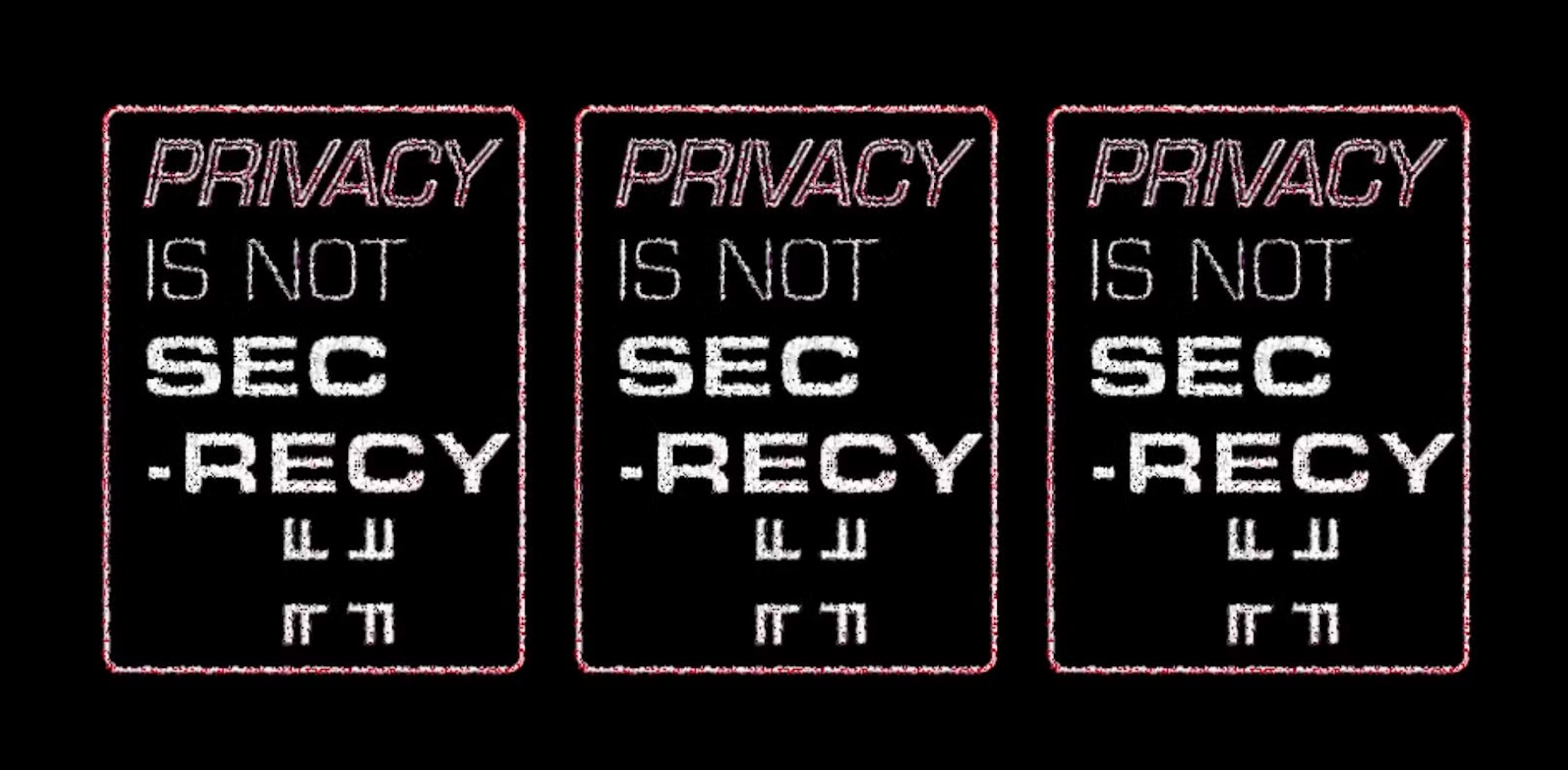Is it Illegal to Write Code?
Roman Storm, developer and co-founder of the Tornado Cash cryptocurrency mixer, was arrested in Washington state in 2023 and charged with three federal crimes: conspiracy to commit money laundering, conspiracy to violate U.S. sanctions, and conspiracy to operate an unlicensed money transmitting business.
His highly-watched trial concluded on August 6, 2025, in Manhattan federal court. Over nearly a month, the jury weighed the core question: can a software developer be held accountable for the open-source tools they write, if others later use those tools illicitly?
The results of the trial:
Charges | Results | |
Conspiracy to commit money laundering (up to 20 years in prison) | Hung jury; possible retrial | |
Conspiracy to violate U.S. sanctions (up to 20 years) | Not guilty | |
Conspiracy to operate an unlicensed money transmitting business (up to 5 years) | Guilty’ up to five years in prison |
Storm was convicted only of the technical offense of operating an unlicensed money transmitting business, not of the major charges of money laundering or sanctions violation. He faces a maximum of five years on that single conviction, but remains free on bail while awaiting sentencing. Prosecutors have not yet said whether they will retry the unresolved count.
While the conviction was narrower than prosecutors had sought, industry experts warn it still “sets a dangerous precedent” that could hamper innovation. If software authors can be prosecuted over how others use their code, open-source and privacy tools could face new legal risks.
Alex Urbelis, general counsel for Ethereum Name Service, commented:
“The hung jury shows real skepticism about the money laundering and sanctions charges, but I’m disappointed by the conviction for operating an unlicensed money transmitter. This is a complex area where legal nuance and technical understanding matter. I’m not convinced the jury fully understood the crucial divide between custodial and non-custodial systems—a distinction that, if properly recognized, should make a conviction here impossible.”
Chief Communications Officer of the DeFi Education Fund, Jenn Rosenthal, also criticized the case, posting:
“The government’s case targeting a software developer should have never been brought in the first place, and remains fundamentally flawed: Tornado Cash is non-custodial software through which people engage in self-directed, p2p transactions. Even the government acknowledges that Tornado Cash developers did not and could not exercise control or custody over user assets.”
The debate centers on the custodial vs. non-custodial distinction. Tornado Cash, as a decentralized protocol, runs autonomously after launch, which was central to the defense’s strategy and a key issue in ongoing appeals.
We question how obscuring funds via a digital mixer is meaningfully different from privacy practices found in traditional banking or by simply using cash—neither of which leave no public transaction trail.

Now is the time to remind ourselves of our cypherpunk roots, to truly fulfill their vision. As the Cypherpunk Manifesto by Eric Hughs states,
“Privacy is necessary for an open society in the electronic age. Privacy is not secrecy. A private matter is something one doesn't want the whole world to know, but a secret matter is something one doesn't want anybody to know. Privacy is the power to selectively reveal oneself to the world.
If two parties have some sort of dealings, then each has a memory of their interaction. Each party can speak about their own memory of this; how could anyone prevent it? One could pass laws against it, but the freedom of speech, even more than privacy, is fundamental to an open society; we seek not to restrict any speech at all. If many parties speak together in the same forum, each can speak to all the others and aggregate together knowledge about individuals and other parties. The power of electronic communications has enabled such group speech, and it will not go away merely because we might want it to.
In November 2024, a Texas District Court overturned the U.S. Treasury’s OFAC sanctions on Tornado Cash’s smart contracts, ruling they did not constitute “property” and that OFAC was not authorized to regulate them. That case highlighted the limits of regulatory power over decentralized protocols, whereas the Roman Storm case focuses on the criminal liability of an individual developer.
The Crypto University (@TheCryptoU) summarized a sentiment felt by many:
“As a software developer, this conviction terrifies me. Are we now liable for how others use our code?”
The outcome underscores the complex legal landscape surrounding crypto in the U.S., and the surprising fact that the Trump administration appears to be pursuing certain key crypto-related cases much like the Biden administration before it.
Visit FreeRomanStorm.com for more information.

Yellow Paper Incoming: How vProgs Will Shape Kaspa
On August 7, 2025, Dr. Yonatan Sompolinsky posted his joint article with Michael Sutton on the research.kas.pa platform, Concrete proposal for a synchronously composable verifiable programs architecture. This detailed proposal lays the groundwork for a new way Kaspa can support applications and smart contracts, outlining 24 key points explaining how this system will work. A full draft, called the yellow paper, is expected by the end of the month. Developers interested in shaping Kaspa’s future are encouraged to join the L1<>L2 Telegram channel to share ideas and collaborate.
While the technical details are complex, the core goal is clear: to keep Kaspa decentralized and efficient as it grows, giving users and developers more freedom and flexibility without sacrificing security or performance. This proposal could be a major milestone in Kaspa’s journey toward becoming a leading blockchain platform.
XXIM x Junny of KEF
This week on the XXIM podcast, Ankit spoke with Junny from the Kaspa Ecosystem Foundation (KEF), offering a rare behind-the-scenes look at how KEF is supporting and growing the Kaspa ecosystem. Formed in early 2024, KEF was created to fill a unique gap in the crypto space. Unlike many other blockchain foundations that begin with pre-funded treasuries or large token allocations, Kaspa was fair-launched, so there was no allocated amount for community projects. Junny explained that KEF’s purpose is to support the ecosystem, whether that’s by funding developer teams, sponsoring research, or organizing community events. It doesn’t exist to profit, but to empower.
Despite a lean operating model, KEF has already made a significant impact. Junny noted that the team now includes 10–15 people handling everything from legal and HR to finance, partnerships, and research. KEF has helped support the core research team, as well as projects like Kasplex. They also support other projects, like Kaspa Finance, although they are not the lead investor. The guiding principle in all of this, Junny stressed, is to always consider what’s best for Kaspa.
The conversation also touched on stablecoins, a topic of growing importance for the ecosystem. Junny and Wolfie have been in discussions with both Circle (USDC) and Tether (USDT), as well as Paxos. Of the two major issuers, Circle has shown more interest in working with Kaspa. At the same time, Tether has been slower to engage, largely because they’re used to working with centralized companies who can pay for integration. Circle is open to running a trial bridge version of USDC that could eventually lead to a native deployment on Kaspa. Circle has already taken note of Kaspa’s growing traction, especially after seeing merchant acceptance demos and increased developer activity. Junny emphasized that most real-world stablecoin usage happens on decentralized exchanges, and that’s where the Kaspa ecosystem is headed.
Throughout the interview, Junny’s commitment to Kaspa’s long-term vision came through clearly. From supporting infrastructure and stablecoin onboarding to funding developers and hosting events, KEF is laying the foundation for a more mature and robust Kaspa ecosystem. As he put it, if Kaspa is going to be the best technology in the world, it has to be the most inclusive too.
Kaskad Lending Platform
Global Kaspa Ambassador, Julien Daubert, is working on a new application called Kaskad. Kaskad will unlock crypto liquidity and provide secured Lombard loans backed by KAS. The application will be built on Kaspa’s DAG architecture and provide real-time pricing through oracles.
This will allow users to borrow against their KAS, so they never have to sell. It will be built on Layer 2. Per their roadmap, in Q2 2025, they worked on an internal prototype to simulate borrowing and lending and performed iterative interface testing to provide foundational insights. This puts them right on track for a decentralized launch in Q3 2025, where they plan to fork the Aave v3.3 protocol to support KAS and a custom lightweight oracle built with Chainlink.
We are excited for it to launch. Follow them on X.com/AppKaskad to stay informed.
Crypto’s new Home in 401Ks
On August 7, 2025, President Trump signed an Executive Order allowing “alternative assets” such as cryptocurrency to be held as part of a 401(k) retirement plan. The order directs the Secretary of Labor to clarify the Department of Labor’s stance on alternative assets and urges regulators, including the Department of the Treasury and the Securities and Exchange Commission (SEC), to assess whether any regulatory adjustments are needed.
There are currently over 90 million Americans enrolled in employer-sponsored 401(k) plans. Imagine the impact if every one of them held just 1 KAS in their retirement portfolio. For more information, please visit the White House Fact Sheet.
Crypto Odie launched Targeted Campaign to Bitcoiners
Crypto Odie is always cooking up the best initiatives to spread awareness about Kaspa. If you’ve been following our Weekly Knight articles, you might remember his Kaspa Speed Tests, where he showcased live transactions across popular crypto networks to highlight Kaspa’s speed and efficiency.
His latest effort might be his most impactful yet, and he is asking the community for help. It’s called the Bitcoin Security Budget Mass Awakening, a targeted effort to educate Bitcoiners about the growing issue of Bitcoin’s long-term security budget—and why Kaspa is the solution.
The campaign centers around a mini-documentary video that will be promoted on X (formerly Twitter) through highly targeted ads shown to Bitcoin-related accounts. Each ad costs just $0.05 per view, or 20,000 USD for 400,000 views. To put that in perspective, if you divide Kaspa’s 2.5B USD market cap by 20,000 USD, that’s only 0.0008%—far below the 13% that typical companies spend on marketing.
Crypto Odie explains that the ad content will be shortened versions of videos he’s already created, designed to draw viewers in without revealing they’re about Kaspa until the very end. This stealthy approach is meant to spark curiosity and increase engagement. According to Odie, just 1 out of every 1,000 Bitcoiners converting to Kaspa could double Kaspa’s market cap, given that Kaspa’s valuation is currently around 1,000x smaller than Bitcoin’s.
As of August 7, 2025, Odie has raised about 5% of his 20,000 USD goal. Let’s help him get the rest of the way there. Let’s help him get the rest of the way there.
To contribute, send KAS to:
kaspa:qpn9z422xwnucmprtc78dj6gelxqwwltepcecpxruwysyufwvuj7vyhrfd8ag.
Also, be sure to follow him at X.com/CryptoOdie.
Kaspa Finance (KFC) Super Protocol Testnet is Now Live
Kaspa Finance’s Super Protocol Testnet went live on August 7, 2025, ushering in a major upgrade to DeFi on Kaspa with a revamped Swap DEX, new fee tiers, a dedicated analytics dashboard, and integrated yield farming.
Users can now access fully integrated liquidity farms for testnet tokens of USDT-KAS, USDC-USDT, FCN-USDT, and USDC-KAS pairs, stake LP tokens to earn KFC rewards, and seamlessly track rewards in real time.
These upgrades mark a significant advance in the Kaspa DeFi ecosystem, offering improved user experience and greater transparency for active participants. Be sure to play around on the testnet here: kaspafinance.io.
Rusty Kaspa on Umbrel App
Rusty Kaspad is now live on the Umbrel app. Huge thanks to Luke Dunshea for uploading and sharing it with the community. For those unfamiliar, Umbrel is a free operating system you can install on a PC to self-host apps and services—and it’s a popular choice for running Bitcoin nodes.
Anyone Can Use K Testnet
The 0.0.1 version of the decentralized social network, K, has been released. Anyone can access and start using the testnet without deploying a local hosting of K-indexer or K webapp, as the new version is hosted. To use, you just generate a private and public key, and a password. Check it out here: https://ksocialnetwork.pages.dev/. Follow X.com/@ReLeomerda to stay up to date with the project.
Kaspa Onion Call to Action
This week the Kaspa Onion put out a call to action for all Kaspaians. Rather than summarize, here is the text:
“You personally are responsible if Kaspa fails in 4 years due to its adoption security budget concerns.
You have a voice
You have a brain
You have talents
There is no marketing team.
This isn’t a free handout.
This is 1 shot at freedom from predatory banking without the risks AND stagnation of Bitcoin.
If Kaspa fails…
We are in a world where Bitcoin is already hijacked and we are priced out of block space and the layer 1.
Your ass is going right back to fractional reserve banking, and it’s entirely your fault.
So:
Get up off your ass
Make videos
Run a node
Get a haircut and pay in KAS
Take your head out of your ass
Preach KAS.”
Preach KAS.
Enjoyed reading this article?
More articles like thisComments
No comments yet!




